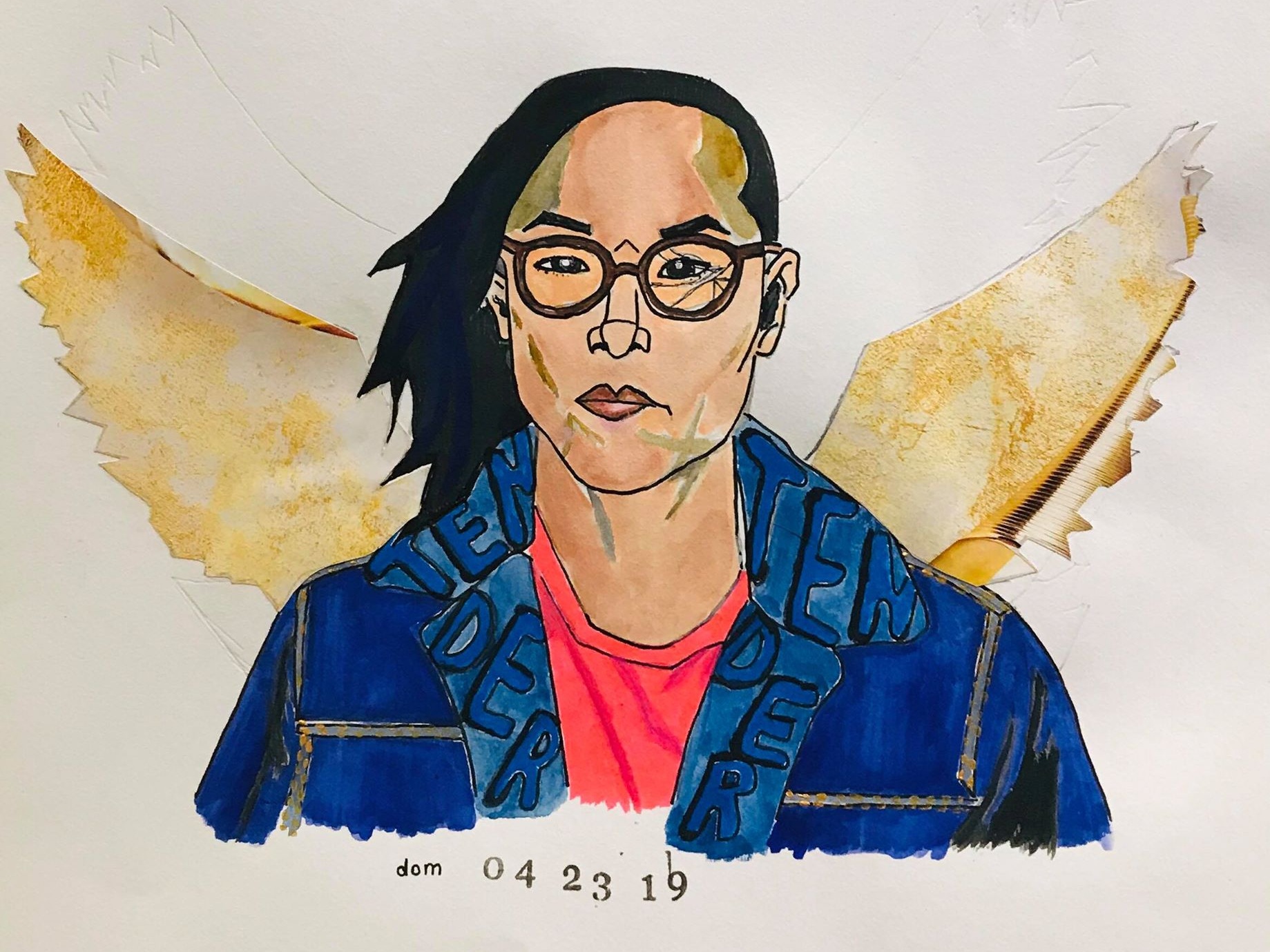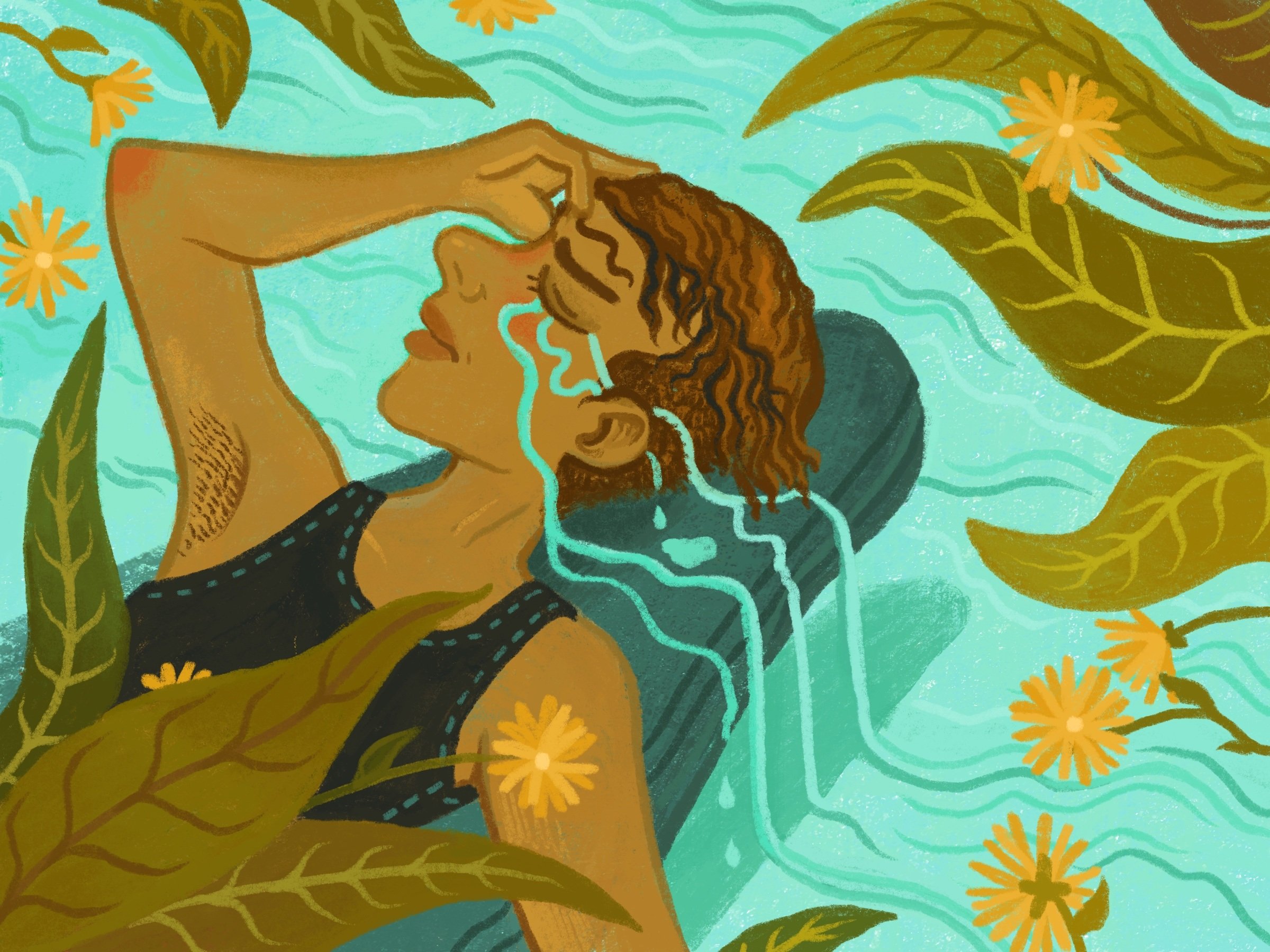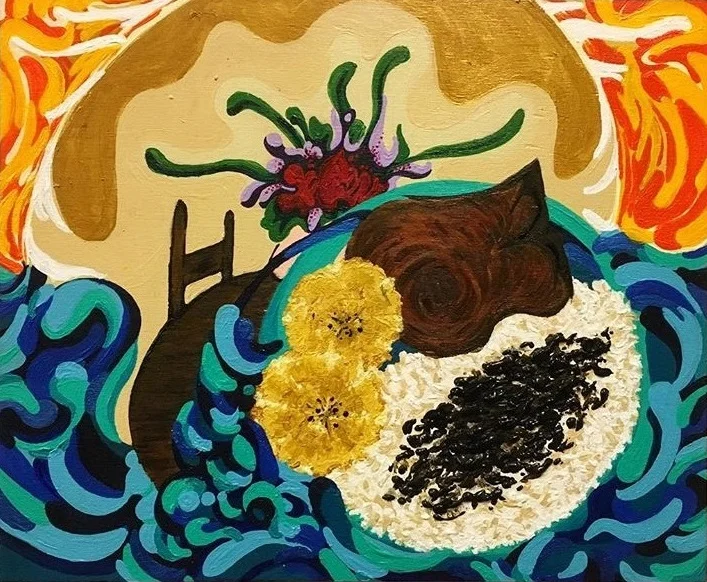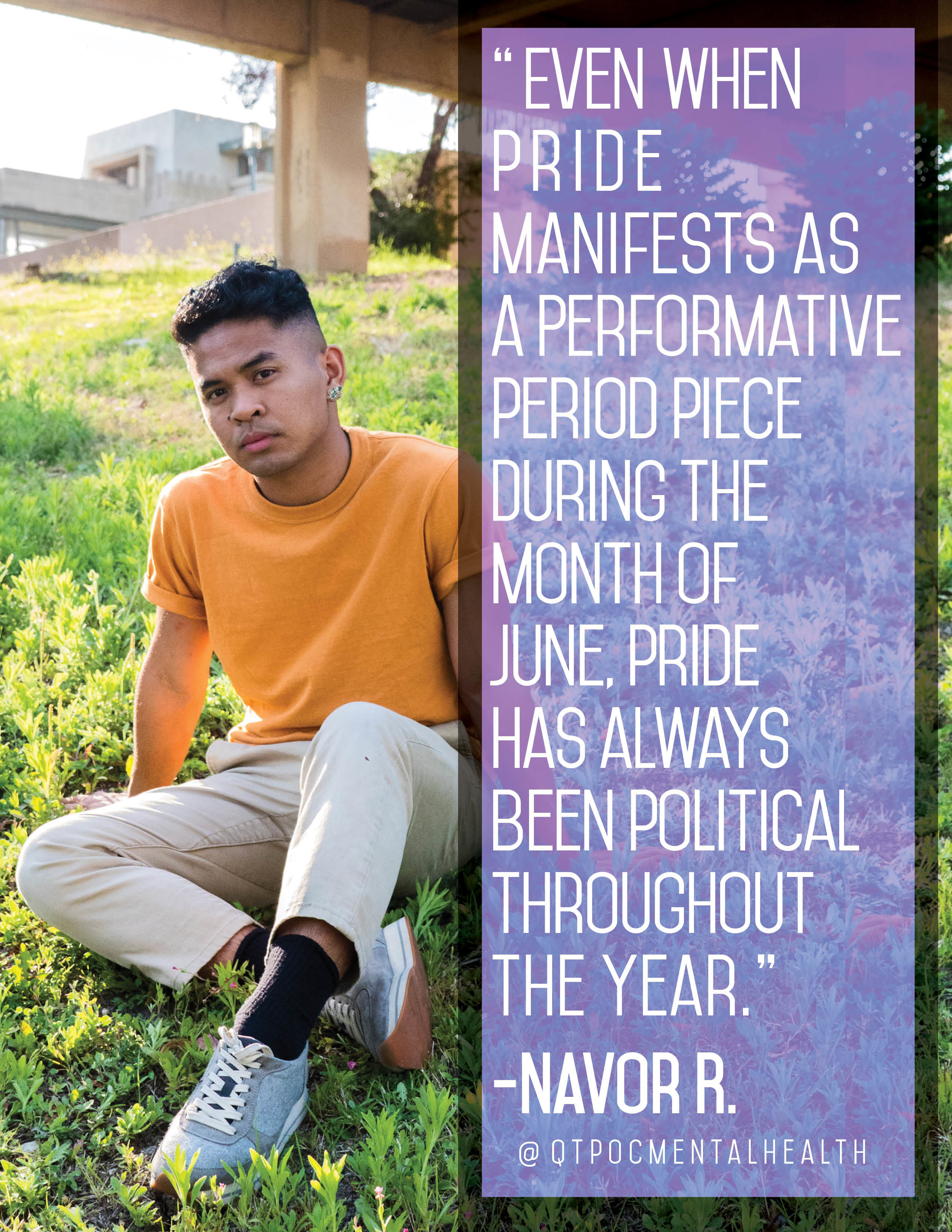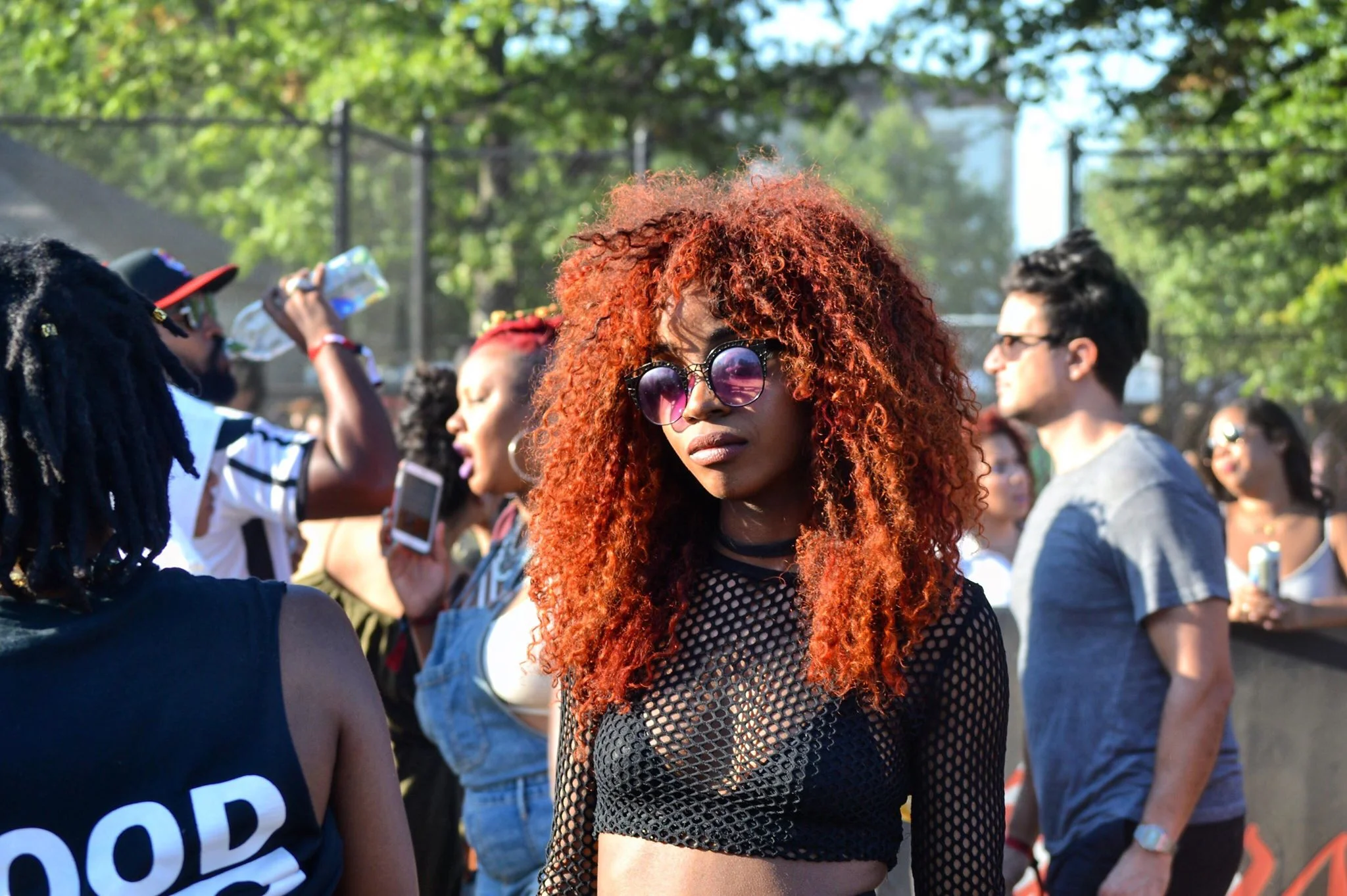Candi Brings Plenty, leader of Two-Spirit Nation at Oceti Sakowin Camp
Wakinyan Tunwanpi Iyoyanpa Win (Bright Lightning Woman)
Click here to donate directly to Two Spirit Nation at Oceti Sakowin Camp.
North Dakota is not like other Midwest states. The Coen Brother’s film, “Fargo” caught some of the nuances (oh ya, you betcha…), but that was only the tip of the frozen north. Midwest nice, or North Dakota Nice, is more passive-aggressive. And since #NoDAPL started gaining international attention, this has transformed into an outright onslaught of North Dakota Nasty. The truth is racism, homophobia, transphobia, ableism, ageism, sexism, and white supremacy are deeply entrenched in NoDak.
White folks here believe that racism only exists in extremes, like Craig Cobb, the white supremacist who bought up land in the little rural town of Leith to turn into an all-white enclave back in 2013. He picked it as the perfect place for his Pioneer Little Europe operation specifically because people tend to look the other way. One of the biggest reasons that he did not succeed in his Aryan fantasy was that hundreds of Natives from the Standing Rock Reservation came and told him that he and his ilk are not welcome. I went to that counter-protest and filmed.
I felt something stir up inside me when I was around my Native brothers and sisters. What awoke inside was how much I’ve been running away from myself.
I was adopted within the family and raised by white parents. I was immersed in a mostly Scandinavian Upper Midwest culture with imagery of vikings, Lutheran church suppers and learning how to make lefse. Being mixed race, this is my culture too. Because my parents told me at an early age, it was never really a taboo topic – the adoption anyway. Information of my biological origins were always kept from me, and to this day are still left unspoken. A big part of who I am is my Dakota Sioux heritage. My cousin (who is biologically my aunt) had always asked my parents why they wouldn’t enroll me in a tribe because it is so integral to my identity. So much of that culture had been taken from me or denied because my parents believe to be protecting me from something. I know who my biological mother is, but my biological father is not on my original birth certificate, making it very complicated to enroll in a tribal nation. Not knowing who I looked like and where I fit has left me with a deep trauma that has followed me my entire life.
I grew up in western North Dakota, about 3 hours west of Bismarck. In school I was bullied a lot. I didn’t see myself as a Native person (because that was completely shut off from me), but I look back at pictures of myself in grade school and see a little two-spirit kid with skin darker than my peers. I don’t recall facing explicit racist harassment, but I did experience harassment as a queer individual, being the only out queer person in my high school graduating class of 27 or so students.
Thinking back, I shudder at the kind of awful racist things I’d hear people say. I remember when there would be a basketball game up in New Town (which is on the Fort Berthold Reservation) athletes would say things like, “Let’s [assault] those fuckin’ squaws.” The closest town with a Walmart was 45 mins away and the nearest Target was an hour and a half away. People around me would say things like, “Don’t shop in Minot or Williston the first of the month. That’s when those Prairie N****rs get their welfare checks.” Sure, we’d learn about Martin Luther King Jr. and the Civil Rights Movement, but no one seemed to consider how oppression was still operating and affecting the Indigenous population – or even could see that the way Natives are being treated in this state is racism.
At the University of North Dakota there is still fights over the Fighting Sioux mascot, and more disturbing stories coming out of one the most prominent universities in the state. North Dakota Indigenous tribes have faced off with the Army Corps of Engineers many times before. Indeed, the story of the Garrison dam creating Lake Sakajawea highlights the insidious nature of the racism that has even formed a body of water. North Dakota ranks 2nd in hate crimes per capita in the country, and in 2013 it ranked first. When there was talk of accepting more refugees in the country, North Dakotans made this facebook page and continue to spread misinformation and fearmongering about Muslims. They completely disregard the fact that North Dakota had the very first mosques in the country.
Over the last couple of years, I never realized how much internalized racism and shame I held inside me. I understand now that I was thinking and hearing the things people would say around me growing up, and the subtle racist things my parents would say. I never knew how much it impacted me because embracing my Native identity has always been out of my grasp. As an adoptee, I felt intense guilt and shame for wanting to learn more about who I am because my parents would feel betrayed.
Attending my first ever Powwow this September was the most surreal and healing experience because I was seen and accepted as a Native man there.
I was asked, "What tribe you from?" I told my story of being adopted and learned how common this feeling of alienation is. All of this has re-awakened my quest to enroll in my tribe. As an adoptee, being around that heritage that was denied or taken from me was the most healing thing, something that my many years of going to a therapist couldn't even do. I felt a sense of home or at least a direction of where I'm going now. It’s very difficult to know where I fit in all of this because I did not grow up on a reservation and did not experience the same kinds of hardships many Native people face – in that way I am indeed privileged. However, this comes at the cost of losing a huge shard of myself and identity. I also have passing privilege, but this too results in severe feelings of alienation, isolation, and genetic bewilderment. This is an intersection that I must come to grips with now.
The tensions that the #NoDAPL protectors have brought to light are ones that have always been present since the original settlers colonized the land. The water protectors unearthed a mirror that many Americans refuse to look into. Even the most progressive of friends have turned against the protectors and want them to “go home.” I’ve lost many friends in North Dakota and had to go my separate ways with some family members for my own safety and sanity. My mom even unfriended my cousin, who is very passionate about ending the pipeline and celebrating her Native heritage. This was very painful to see because my cousin lived with us when I was a baby and, in a lot of ways, my parents raised her as their own too. She also has been the only link for me to know about my Sioux roots.
All of this made me directly face how whitewashed my own upbringing was.
The tensions in Bismarck have manifested in constant planes circling in the sky, an influx of police presence throughout the city (many cop cars do not have their lights on even when it’s dark), automated phone calls from Morton and Burleigh Country telling us that there are “rioters in the area” and that we need to “be careful.”
I visited the water protectors camp back in September during that Powwow weekend. I dropped off supplies on behalf of my friends that live out of state. This was during what I would consider the calm before the storm. I’m glad I got to go once. It was a powerful experience and the feeling reminded me of that time in Leith standing with these warriors a few years ago. There are no words for that collective healing and acknowledgement of the inner strength and resilience that each and every one of these protectors hold. I could feel it in my very DNA. However, since everything has gotten to be so intense where I live (the tensions in town, issues with family, etc.) it has left me feeling very, very ill. I have been able to help in subtle ways, but in order for me to do more, I need to take care of myself first. The intersections of my fractured self have made it significantly confusing as to where my place is and what would be safe for me to do considering the very limited resources I have.
Being a queer transman and living here is very difficult. To get good quality trans health care I have to drive 6 hours to St. Paul, Minnesota.
Along with the disenfranchisement of being trans and queer in Bismarck, I also live with bipolar 1 disorder, complex PTSD, depression, and anxiety disorders. In 2017, the legislative session will begin and medicaid and medicare are on the chopping block, and I have only just begun to get my bearings again. The double whammy of a Trump dictatorship on top of a dominantly republican state legislature means that I am at severe risk of losing my psych medication and testosterone. This has caused me an intense mixed-episode of bipolar and has made it difficult for me to work as a substitute teacher, a job with no reliable income.
I have insomnia, or I awake in the middle of the night with panic attacks and crying fits. My stomach feels as though there is a porcupine living in it. The day after the election I felt driven to build a stone oven to bake bread in. Nine to ten hours a day I worked on building this structure (using mostly recycled materials) even though I have zero experience in construction. In seven days, I completed it. I was so proud that I accomplished this goal, but when all the building was finished, the depression came back, and I came undone once again. Little by little I came to and started baking bread. I baked a honey wheat loaf in my wood fired oven and was absolutely delighted that it worked. So many people were supportive of my quest to build this oven and told me that watching this happen on social media helped them too. It broke up the barrage of scary news in their feeds to see someone like me just go out and create despite everything that’s happening.
I continue to bake bread inside and have been experimenting with recipes using beer and sourdough. This holiday season I will be baking a couple pies for families in need at the Ronald McDonald house. Baking and cooking are ways for me to cope with everything going on. Being in the kitchen has also been a way for me to resist this myriad of oppressions that constantly trigger me into difficult spirals of major depressive episodes or intense manic swings. By doing this, I am able to function enough to get through the day. By doing this, I am not running away from myself anymore.
I am no longer in denial of who I am or what I can take.
I have done many boots-on-the-ground type of activism and organizing all kinds of protests for the past six years, and I know myself enough not to overstep my limits anymore. If I push through anyway and take on more than I can handle, I end up helping no one and harming myself. I may not be on the front lines at the #NoDAPL protest, but I am still supporting in ways that I can. There is that saying, “You can’t pour from an empty cup.” Well, I have a whole kitchen (and a stone oven) I can use to support myself and others through this.
We can't continue publishing without community support!
Articles and artwork like these are only possible through your contributions. Please donate today to sustain the work of artists, writers, healers, and everyday QTPoC.
Image description:
A Native person, viewed from behind, stands before a line of riot police in an asphalt parking lot. They have their arms stretched high in the air with several tattoos showing. There are two large white and brown feathers in their long black hair, and are wearing a vivid blue shawl and a black dress with horizontal white stripes. A kneeling person films in the background.
About Rvnwolf Split-Feather:
Ravnwolf is a transman, food enthusiast, activist, artist, and writer living in North Dakota.
About Candi Brings Plenty:
Please donate to support Two-Spirit Nation at Oceti Sakowin Camp. Wakinyan Tunwanpi Iyoyanpa Win, aka Candi Brings Plenty, leads the camp in prayer and Lakota spirituality. Candi is a quill worker, beader, fan dancer, and wichaglata, a singer who uses her voice as Pejuta (medicine) for the Oyaté.









